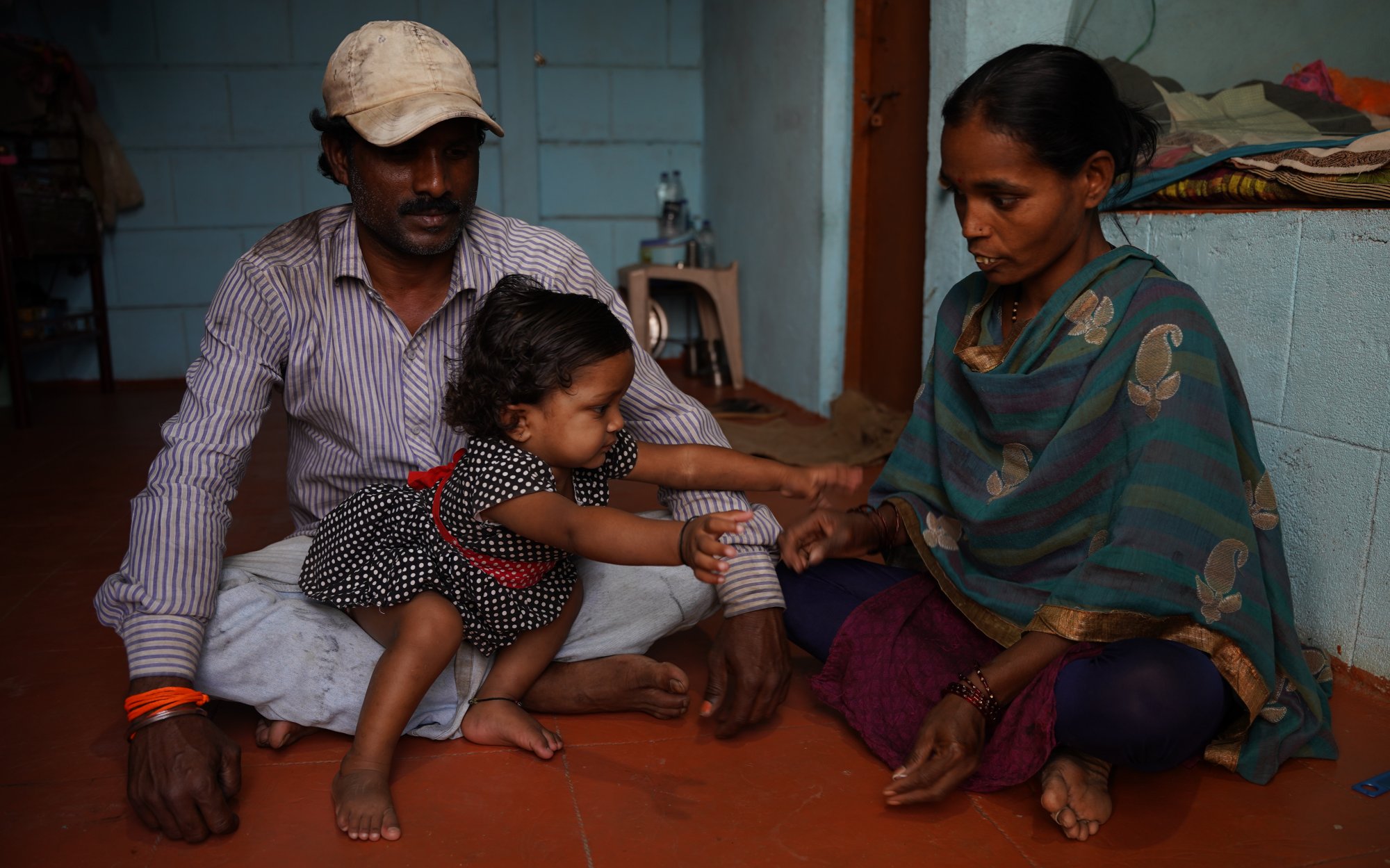“The death [of that child] shook me to the core. Nobody was willing to perform his last rites. His body had started rotting. With the help of my friends, I performed his last rites,” he recalled.
Before embarking on his life mission, Bapatle was a journalist working with a local Marathi language newspaper, as well as teaching journalism at a local college.
He encountered much opposition over his plan to set up the sanctuary from the locals at Hasegaon after he arrived there in 2007.
Meet the man on a mission to save New Delhi’s homeless from the bitter cold
Meet the man on a mission to save New Delhi’s homeless from the bitter cold
A friend’s grandfather had donated six and a half acres of land there towards Bapatle’s cause. But the village authorities refused to give him a certificate for the supply of electricity and water.
Eventually, the district administration intervened and allowed him to have access to utilities. Bapatle then built basic infrastructure including roads and small huts and opened a non-governmental organisation called “Aamhi Sevak Sanstha” to serve people living with HIV/Aids.
As the number of HIV-infected children under Bapatle’s care grew, he enrolled them in a government school but met resistance from locals who feared that the virus would spread to their children.
I told the villagers to hang me if my children ever became the reason for the spread of the disease in the school
The school was closed for almost four months as a result of protests by locals, said Bapatle, who hailed from the village of Udgir Taluk in Latur. The huts he built and the trees he planted on his premises were burned and damaged, he added.
But Bapatle refused to give up and his perseverance paid off after district administrators, social organisations and doctors convinced the locals that the children living at the sanctuary were not a danger to the community.
“I told the villagers to hang me if my children ever became the reason for the spread of the disease in the school,” he said.
Amid these challenges, Bapatle has also met Samaritans who offered him support through donations and other means, some of whom found out about his mission through local media.
India’s drag artists share inclusive messages of gender equality in schools
India’s drag artists share inclusive messages of gender equality in schools
As the children under Bapatle’s care grew, he needed to ensure their long-term well-being. He decided to transform his sanctuary and build a “village” for its residents. To finance the purchase of an additional sixteen and a half acres of land to set up Happy Indian Village, Bapatle formed a cultural troupe of children who performed shows in different states of India and helped raise funds.
Today, the once-barren patch of land is a thriving green space, dotted with lush gardens and huts for HIV-positive couples. Many of the residents undertake farming activities to enable them to become self-sufficient and earn a living.
Among them is Rani, now 28, who was one of the first children to arrive at the sanctuary in 2007. With access to education and support from Bapatle, she was able to complete her studies in nursing and later found her life partner there.

A mother of two children who are HIV-free, Rani lives in a hut, and along with girls, cooks for the entire 110 people living in the village. Her husband Vikas takes care of farming activities.
“I got a new lease of life here. Baba gave me an education and helped me get married. Without him, I don’t know what would have happened to me,” she said.
Many of the children who live in Happy Indian Village have contracted HIV/Aids from their parents. With no medication available for them and facing stigma, the children had to fend for themselves after losing their parents to the disease.
According to some estimates, about 2.5 million people were living with HIV in India in 2022.
Queer Indians fight for safe online spaces amid ‘pervasive’ social media abuse
Queer Indians fight for safe online spaces amid ‘pervasive’ social media abuse
In 2004, the Indian government announced that the antiretroviral therapy (ART) medicine would be made free for HIV patients in the country. The medicine, which could help to control the virus, was a godsend for the residents of Happy Indian Village.
“The medicine has prolonged the life expectancy of the children, which was otherwise restricted to around 12–13 years,” said Bapatle.
In the past 10 years, Bapatle has helped 24 couples from the sanctuary to get married – some of them later became parents to 17 HIV-free children. This year, five more women living there are expected to get married.
“I have been receiving marriage proposals [from HIV-positive men] for them from different parts of the state,” Bapatle said.

Among the couples are Amit, 30, and Pooja, 23, who recently welcomed a baby girl after being married for two years. They decided to live in Happy Indian Village after contracting HIV.
“I am very happy. After being abandoned by my family, it was Baba who took care of me. And today I have my own family to look after,” Pooja said, while feeding her daughter.
Another HIV-positive couple who live at the sanctuary, Jyoti and Parmeshwar, are proud parents of a one-and-a-half-year-old daughter, who is HIV-free. Parmeshwar said he decided to marry Jyoti, who was born deaf and mute, despite her disability.

“She has no one except me. We have been married for two years and have learned to communicate with hand gestures,” he said.
Looking at the children playing at Happy Indian Village, Bapatle said he hoped for a day when the sanctuary is no longer needed.
“My wish is to close down this village permanently. And that can only happen if we can eradicate HIV from our country. Let this village be the beginning of an end to this disease,” he said.

